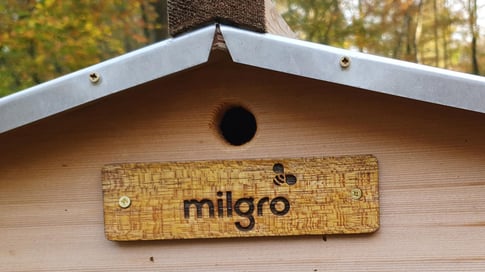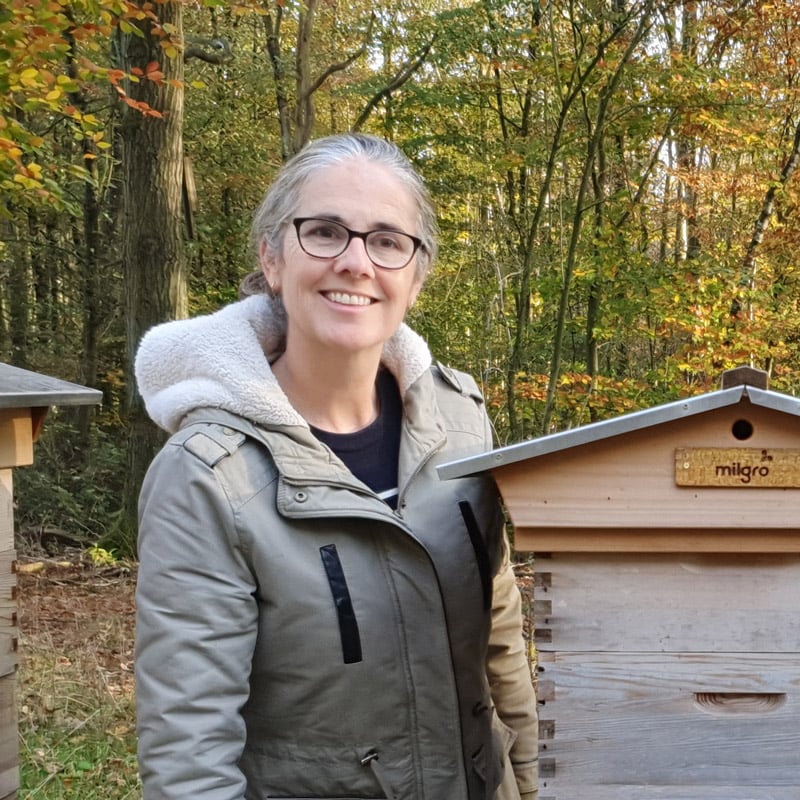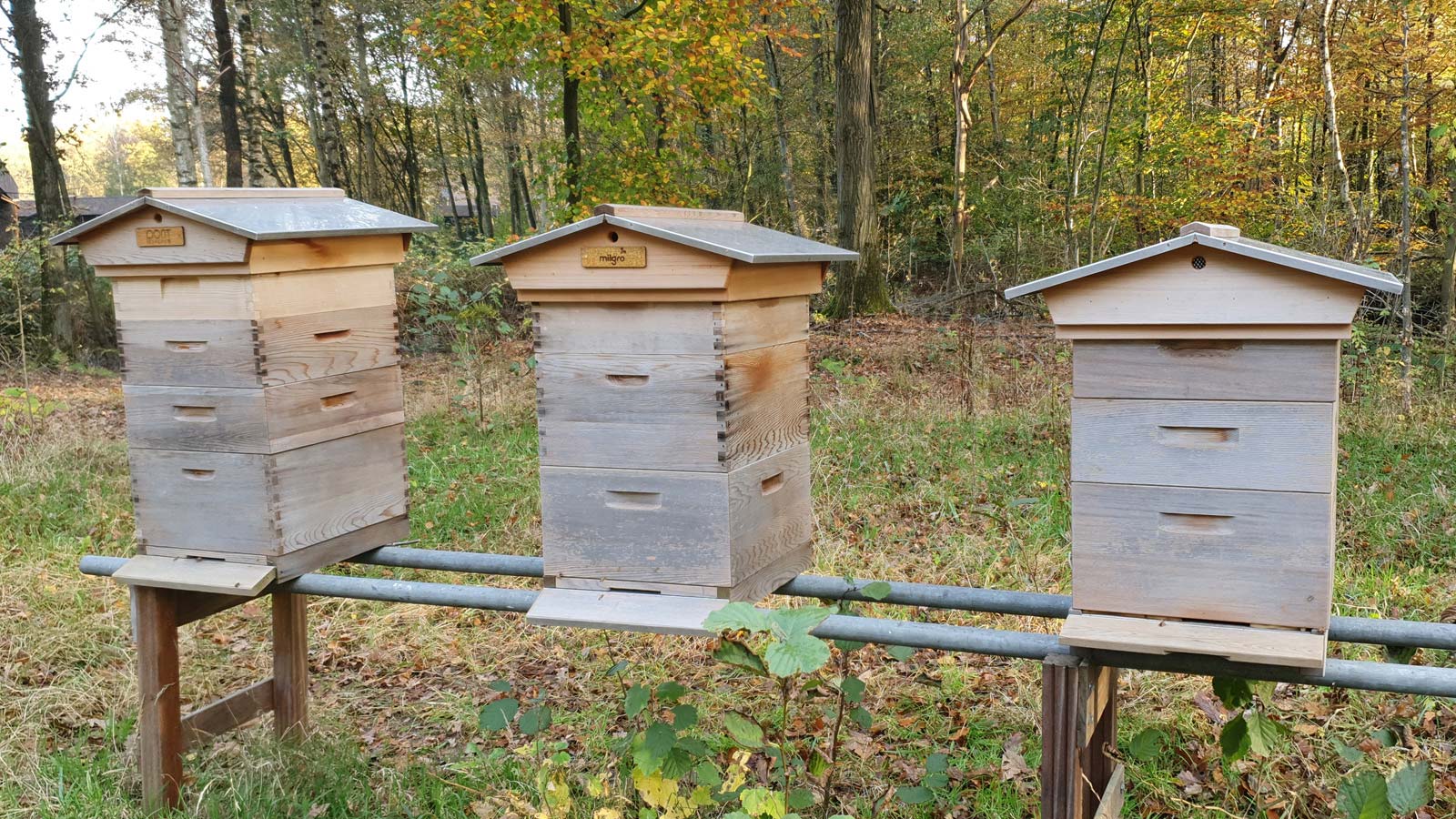As of November 7, 2020, Milgro has its own beehive. Both bees and Milgro provide ecosystem services and are restorers of natural capital. That's why the bee has been included in our logo. So yes, then it is important to suit the action to the word! Liquid Nature will keep and maintain the beehive.

Evolution of bees
Over 100 million years ago bees appeared on earth. This was when dinosaurs still existed. Flowers pre-existed bees by 20 million years. Soon enough, bees and other insects apparently enjoyed visiting the sweet and nutritious pollen of flowers. Along the way, they pollinated other flowers and plants. This turned out to be a fruitful collaboration, which led to an increase in biodiversity.
Impact of climate change on bees
When a tremendous climate change occurred 65 million years ago, various plants and flowers, that were essential with their nectar and pollen as food for bees, became extinct. As a result, bees were almost extinct themselves. The resilient bees have weathered the crisis and came out stronger, fortunately! Nowadays, however, history seems to be repeating itself.
Modern challenges for bees
In the Netherlands, there is a monoculture of maize and grass for feed production in agriculture. There is a shortage of sufficient food for bees. Pesticides and Varroa mite contribute to bee mortality as well. Circular agriculture provides a better alternative. Natural beekeeping methods contribute to vital bee colonies. Bees often do better in cities, because there is more biodiversity and less use of pesticides in gardens.
Pollination and biodiversity
Biodiversity is important to humans. Think of food supply and the occurrence of pandemics. Bees are responsible for 90% of the pollination of flowers and plants. More than 60% of the pollination of our food crops depends on pollination by bees. Declining biodiversity affects the ecological balance, resulting in an increasing risk of disease transmission. Bees contribute to biodiversity by pollination and by that to a better ecological balance.
The UN and biodiversity
The United Nations with their sustainable goals SDG 15 ‘life on land’ and SDG 14 ‘life below water’ have set the biodiversity goals for 2030. Milgro is committed to the goals.
The national bee strategy
Facilitating honeybees in a beehive is in line with the national bee strategy. The national bee strategy is focuses on the so-called bed & breakfast principle: make sure that bees can nest and there is sufficient bee feed. Beehives and their maintenance by beekeepers sustain this. Both the honeybee and the wild bee are supported.
Using technology for improvement
Sensors placed in and under beehives will provide insight in the behavior of bees, based on data analysis. Collecting, interpretating and comparing this data with data from other beekeepers in the region will enhance the situation of the beehives. This technology concurs well with Milgro's method.











